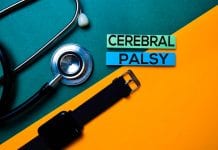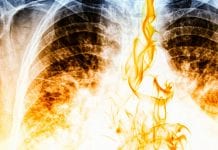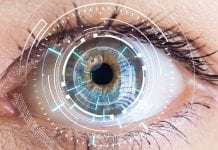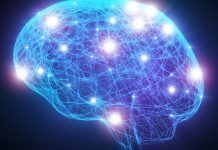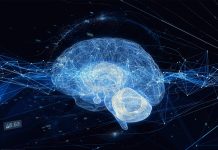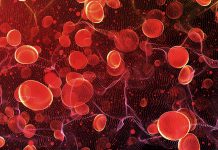Neurodegenerative diseases are those conditions which primarily affect the neurons in the human brain. Neurons are the building blocks of the nervous system which normally don’t reproduce or replace themselves. Damage or disease can lead to such neurodegenerative diseases as Parkinson’s, Alzheimer’s, and Huntington’s disease.
Neurodegenerative Diseases Related News
‘Dementia Moonshot’: New report highlights six areas of critical investment
Alzheimer’s Research UK has created an ambitious spending plan for the government’s ‘Dementia Moonshot’ funding pledge.
Dementia is the nation’s biggest killer and has quickly...
Cerebral palsy: first European drug approval in upper limb spasticity for a decade
Ipsen has announced the UK’s Medicine and Healthcare Products Regulatory Agency approved Dysport® for the treatment of spasticity of upper limbs in children with...
Metabolic dysregulation: origins of neurodegenerative disease
New research has shed light on the origins of the neurodegenerative disease spinocerebellar ataxia type 7 (SCA7) and demonstrates effective new therapeutic pathways for...
Weekly physical and cognitive exercise can improve Parkinson’s symptoms
Parkinson’s patients’ motor and non-motor symptoms were improved with a weekly exercise regimen that included physical and cognitive tasks, according to new research.
The research...
Measuring stressed cells to understand the development of disease
When cells are stressed, they initiate a complex and precisely regulated response to prevent permanent damage.
Researchers from Goethe University have developed a new protoeomics...
New study looks at the links between fitness and dementia
Those looking to reduce the likelihood of getting dementia in later life should think about their fitness regime.
Are there links between fitness and dementia?...
Cardiologists establish how e-cigarettes damage the brain, blood vessels and lungs
Cardiologists have issued a stark warning about the dangers of how e-cigarettes damage the brain, blood vessels and lungs, particularly for young people.
The study, published...
Retinal imaging technology for early detection of Alzheimer’s disease
A new breakthrough technology could help early diagnosis of Alzheimer's disease.
This innovative imaging technology – retinal hyperspectral imaging – allows for the analysis of...
How can ultrasonic brain stimulation cure brain diseases?
Low intensity, low frequency ultrasound could provide hope for neurodegenerative brain diseases, such as Parkinson’s, as well as conditions such as dementia, concussions, and...
Genetic markers linked to the start of symptoms of Parkinson’s disease
A group of genetic variants related to the starting point of Parkinson’s disease have been identified.
The findings will enable delimiting the research on new...
Common nutrient may help combat Alzheimer’s disease
A lifelong dietary regimen of choline holds the potential to prevent Alzheimer's disease (AD) according to a new study.
Lead author Ramon Velazquez and his...
Yin and yang: an exploration of the endocannabinoid system
Vital for maintaining health, the endocannabinoid system is found in both animals and humans.
The two cannabinoid receptors, CB1 and CB2, belong to the so-called...
Alzheimer’s research increasingly focused on links to sleep and other behaviours
Sleep and other behavioural topics are growing within Alzheimer’s disease research, according to a new report released by Elsevier.
September is World Alzheimer’s Month, and...
The world of silent strokes: a common phenomenon you didn’t know about
Canadian researchers have discovered that covert or silent strokes are common in seniors after they have elective, non-cardiac surgery and double their risk of...
How does a dementia protein become dysfunctional?
University of Queensland researchers have used super-resolution microscopy to shed a light on how dementia protein can become dysfunctional.
Using a super-resolution microscopy to observe...
The science behind traumatic brain injury and concussion
While probing the origins of concussion, Stevens researchers identify which regions of the brain are more vulnerable to damage from a traumatic brain injury.
If...
Cerebral Palsy treatment: smart cells release 21st stem cell sample to treat child
Introducing cutting-edge cell-based Cerebral Palsy treatment – discover how Smart Cells have released their 21st stem cell sample to the Duke University Hospital, to...
Pregnant women taking epilepsy drugs increase language impairment in their children
Today at the 5th European Academy of Neurology Congress, researchers present how epilepsy drugs taken by pregnant women is associated with higher risk of...
Virtual reality helps Hanover Scotland staff deliver better dementia care
“Incredibly Emotional” is the phrase housing association care staff in Moray have used to describe a virtual reality training session which helped bring improved...
Aggregating amyloid proteins play a key part in Alzheimer’s disease
Stockholm University and Karolinska Institutet have discovered that viruses can bind a special class of proteins called amyloid proteins that play a part in...



